"Los Angeles, 1963: African American Korean War veteran Harry Ingram earns a living as a news photographer and occasional process server: chasing police radio calls and dodging baseball bats. When Ingram hears a call over the police scanner to the scene of a deadly automobile accident, he recognises the vehicle described as belonging to his good friend and old army buddy, the white jazz trumpeter Ben Kinslow, with whom he'd only just reconnected. The LAPD declares the car crash an accident, but when Ingram develops his photos there are signs of foul play. Ingram feels compelled to play detective, even if it means putting his own life on the line"--
Praise for One-Shot Harry
CrimeReads 10 Novels to Read this Month
CrimeReads Most Anticipated Books of 2022
She Reads Most Anticipated Mystery Novels of 2022
A Library Journal Editor's Pick for Spring 2022
Terrific . . . What makes One-Shot Harry a standout is the cityscape of mid-century L.A it summons up its music, chromium cars, hateful slurs, invisible racial boundaries and cautious hopes.
NPR's Fresh Air
Phillips is a storyteller first, and the social chronicling never becomes didactic or overtakes the narrative. The wounds of 1963, and the foreshadowing of both better days and harsher ones, feel unnervingly fresh, and a reminder that progress, much as we wish otherwise, never adheres to a linear timeline.
Sarah Weinman, The New York Times Book Review
One-Shot Harry is fast-paced, tough, wry and smart, but what makes this novel a singular sensation is the diverse cityscape of mid-century L.A. that Phillips summons up. More than simply scattering cosmetic references to African American newspapers or notables like Dorothy Dandridge . . . Phillips takes readers deep into another world and time: its jokes, home furnishings, baloney-meatloaf-and-hot-dog-heavy meals; its hateful slurs, invisible racial boundaries and cautiously hopeful possibilities.
Maureen Corrigan, The Washington Post
Propulsive . . . One-Shot Harry crackles with authenticity, and its resilient hero seems resourceful and tough enough to propel any number of sequels.
Tom Nolan, The Wall Street Journal
Vividly depicts 1963 L.A . . . Phillips insight into racism, attitudes toward Black veterans, the Civil Rights movement, Black press and politics of the 1960s elevates One-Shot Harry. Readers will look forward to more camera work from Harry, and Phillips.
Oline Cogdil, The South Florida Sun-Sentinel
Phillips s writing has long been infused with big ideas and a scathing analysis of American greed, corruption, and racism . . . Encyclopedic knowledge of the history of Los Angeles s economic development and progressive politics deepens the plot of One-Shot Harry.
Paula Woods, Alta Magazine
The Phillips style of plotting fits squarely in the Chandler/Hammett tradition with the addition of intriguing and powerful issues of race.
Toronto Star
Race and racial tension are the backbone of this novel of the early 1960s . . . Phillips captures the volatility of those times, when civil rights was literally on the march. He also effectively conjures the seamier side of Los Angeles . . . Phillips nails the atmosphere. He also keeps the reader guessing.
Pittsburgh Post-Gazette
For thirty years Phillips has been a must-read writer, and One-Shot Harry is probably his best ever tense and suspenseful, of course, but also deep, resonant and intelligent. It's a story that needed to be told, and therefore a book that needs to be read.
Lee Child
Few books are able to capture the essence and vibe of classic hardboiled fiction and still manage to make the prose feel modern and of-the-moment. Gary Phillips does just that with One-Shot Harry and the memorable titular protagonist, Harry Ingram. This book is a swift uppercut of gritty storytelling that will keep you hungrily turning the pages, loaded with moments that will linger in your mind long after you've finished reading.
Alex Segura, author of Secret Identity, Blackout, and Miami Midnight
Phillips vision of Los Angeles in 1963 comes to vivid life in the form of Harry Ingram, a news photographer and part-time process server who s putting himself in the firing line all day long as the city s racial and social divides pull further and further apart. When an old Army friend of his is killed in a car accident, Ingram takes his crime scene photos and his wits on a journey through a deeply corrupt city, looking for the final answers for one man s death.
CrimeReads
Los Angeles is as much a character as any of them, and part of the joy of reading One-Shot Harry is immersing oneself in Phillips grittily detailed rendering of the city, informed by his past experiences as a community activist in South LA . . . The shadows of Raymond Chandler and Dashiell Hammett are discernible throughout Phillips lively narrative.
Pasadena Weekly
With its setting, this novel might remind you of Easy Rawlins or Harry Bosch, but I would strongly recommend reading it as a counterpoint to the LA Quartet by James Ellroy. Gary Phillips authentically tells the other side those who faced police and institutional racism in Los Angeles. And while, yes, it s about race, the author succeeds in directing us well beyond that theme and towards something much bigger. It s about justice.
Crime Fiction Lover
Phillips vividly captures the sights and sounds of the era (jazz and blues on Central Avenue) as well as the ubiquitous racism and police brutality that threatened everyone in the Black community. Ingram emerges as a particularly satisfying, no-nonsense hero.
Booklist, Starred Review
Terrific . . . With close attention to period detail and precise prose, Phillips brings the era vividly to life. Crime fiction fans won t want to miss this one.
Publishers Weekly, Starred Review
Phillips roots his hero s adventures in a densely woven web of real-life local history that emphasizes both Black Angelenos historic oppression and the moment for resistance crystallized in the Freedom Rally King plans en route to the demonstration in D.C. whose approach signals the possibility of historic change for both haves and have-nots. Like Walter Mosley in his stories about Easy Rawlins, Phillips presents a powerfully history-driven mystery.
Kirkus, Starred Review
Praise for Gary Phillips
Gary Phillips is my kind of crime writer.
Sara Paretsky, New York Times bestselling author
In the tradition of Dashiell Hammett . . . Makes us feel that the war he s waging is for our own salvation.
Walter Mosley, author of the Easy Rawlins series
Gary Phillips writes tough and gritty parables about life and death on the mean streets . . . his is a voice that should be heard and celebrated.
Michael Connelly, author of Void Moon and Angel s Flight
CrimeReads 10 Novels to Read this Month
CrimeReads Most Anticipated Books of 2022
She Reads Most Anticipated Mystery Novels of 2022
A Library Journal Editor's Pick for Spring 2022
Terrific . . . What makes One-Shot Harry a standout is the cityscape of mid-century L.A it summons up its music, chromium cars, hateful slurs, invisible racial boundaries and cautious hopes.
NPR's Fresh Air
Phillips is a storyteller first, and the social chronicling never becomes didactic or overtakes the narrative. The wounds of 1963, and the foreshadowing of both better days and harsher ones, feel unnervingly fresh, and a reminder that progress, much as we wish otherwise, never adheres to a linear timeline.
Sarah Weinman, The New York Times Book Review
One-Shot Harry is fast-paced, tough, wry and smart, but what makes this novel a singular sensation is the diverse cityscape of mid-century L.A. that Phillips summons up. More than simply scattering cosmetic references to African American newspapers or notables like Dorothy Dandridge . . . Phillips takes readers deep into another world and time: its jokes, home furnishings, baloney-meatloaf-and-hot-dog-heavy meals; its hateful slurs, invisible racial boundaries and cautiously hopeful possibilities.
Maureen Corrigan, The Washington Post
Propulsive . . . One-Shot Harry crackles with authenticity, and its resilient hero seems resourceful and tough enough to propel any number of sequels.
Tom Nolan, The Wall Street Journal
Vividly depicts 1963 L.A . . . Phillips insight into racism, attitudes toward Black veterans, the Civil Rights movement, Black press and politics of the 1960s elevates One-Shot Harry. Readers will look forward to more camera work from Harry, and Phillips.
Oline Cogdil, The South Florida Sun-Sentinel
Phillips s writing has long been infused with big ideas and a scathing analysis of American greed, corruption, and racism . . . Encyclopedic knowledge of the history of Los Angeles s economic development and progressive politics deepens the plot of One-Shot Harry.
Paula Woods, Alta Magazine
The Phillips style of plotting fits squarely in the Chandler/Hammett tradition with the addition of intriguing and powerful issues of race.
Toronto Star
Race and racial tension are the backbone of this novel of the early 1960s . . . Phillips captures the volatility of those times, when civil rights was literally on the march. He also effectively conjures the seamier side of Los Angeles . . . Phillips nails the atmosphere. He also keeps the reader guessing.
Pittsburgh Post-Gazette
For thirty years Phillips has been a must-read writer, and One-Shot Harry is probably his best ever tense and suspenseful, of course, but also deep, resonant and intelligent. It's a story that needed to be told, and therefore a book that needs to be read.
Lee Child
Few books are able to capture the essence and vibe of classic hardboiled fiction and still manage to make the prose feel modern and of-the-moment. Gary Phillips does just that with One-Shot Harry and the memorable titular protagonist, Harry Ingram. This book is a swift uppercut of gritty storytelling that will keep you hungrily turning the pages, loaded with moments that will linger in your mind long after you've finished reading.
Alex Segura, author of Secret Identity, Blackout, and Miami Midnight
Phillips vision of Los Angeles in 1963 comes to vivid life in the form of Harry Ingram, a news photographer and part-time process server who s putting himself in the firing line all day long as the city s racial and social divides pull further and further apart. When an old Army friend of his is killed in a car accident, Ingram takes his crime scene photos and his wits on a journey through a deeply corrupt city, looking for the final answers for one man s death.
CrimeReads
Los Angeles is as much a character as any of them, and part of the joy of reading One-Shot Harry is immersing oneself in Phillips grittily detailed rendering of the city, informed by his past experiences as a community activist in South LA . . . The shadows of Raymond Chandler and Dashiell Hammett are discernible throughout Phillips lively narrative.
Pasadena Weekly
With its setting, this novel might remind you of Easy Rawlins or Harry Bosch, but I would strongly recommend reading it as a counterpoint to the LA Quartet by James Ellroy. Gary Phillips authentically tells the other side those who faced police and institutional racism in Los Angeles. And while, yes, it s about race, the author succeeds in directing us well beyond that theme and towards something much bigger. It s about justice.
Crime Fiction Lover
Phillips vividly captures the sights and sounds of the era (jazz and blues on Central Avenue) as well as the ubiquitous racism and police brutality that threatened everyone in the Black community. Ingram emerges as a particularly satisfying, no-nonsense hero.
Booklist, Starred Review
Terrific . . . With close attention to period detail and precise prose, Phillips brings the era vividly to life. Crime fiction fans won t want to miss this one.
Publishers Weekly, Starred Review
Phillips roots his hero s adventures in a densely woven web of real-life local history that emphasizes both Black Angelenos historic oppression and the moment for resistance crystallized in the Freedom Rally King plans en route to the demonstration in D.C. whose approach signals the possibility of historic change for both haves and have-nots. Like Walter Mosley in his stories about Easy Rawlins, Phillips presents a powerfully history-driven mystery.
Kirkus, Starred Review
Praise for Gary Phillips
Gary Phillips is my kind of crime writer.
Sara Paretsky, New York Times bestselling author
In the tradition of Dashiell Hammett . . . Makes us feel that the war he s waging is for our own salvation.
Walter Mosley, author of the Easy Rawlins series
Gary Phillips writes tough and gritty parables about life and death on the mean streets . . . his is a voice that should be heard and celebrated.
Michael Connelly, author of Void Moon and Angel s Flight

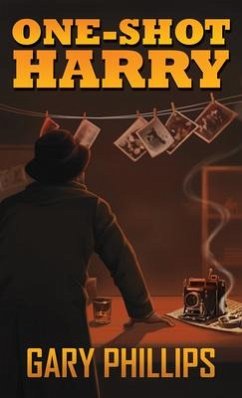
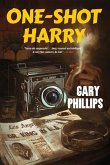
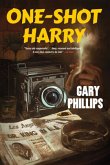

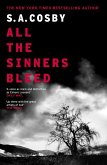
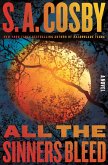
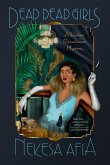
![Leave the World Behind [Movie Tie-In] Leave the World Behind [Movie Tie-In]](https://bilder.buecher.de/produkte/67/67523/67523245m.jpg)